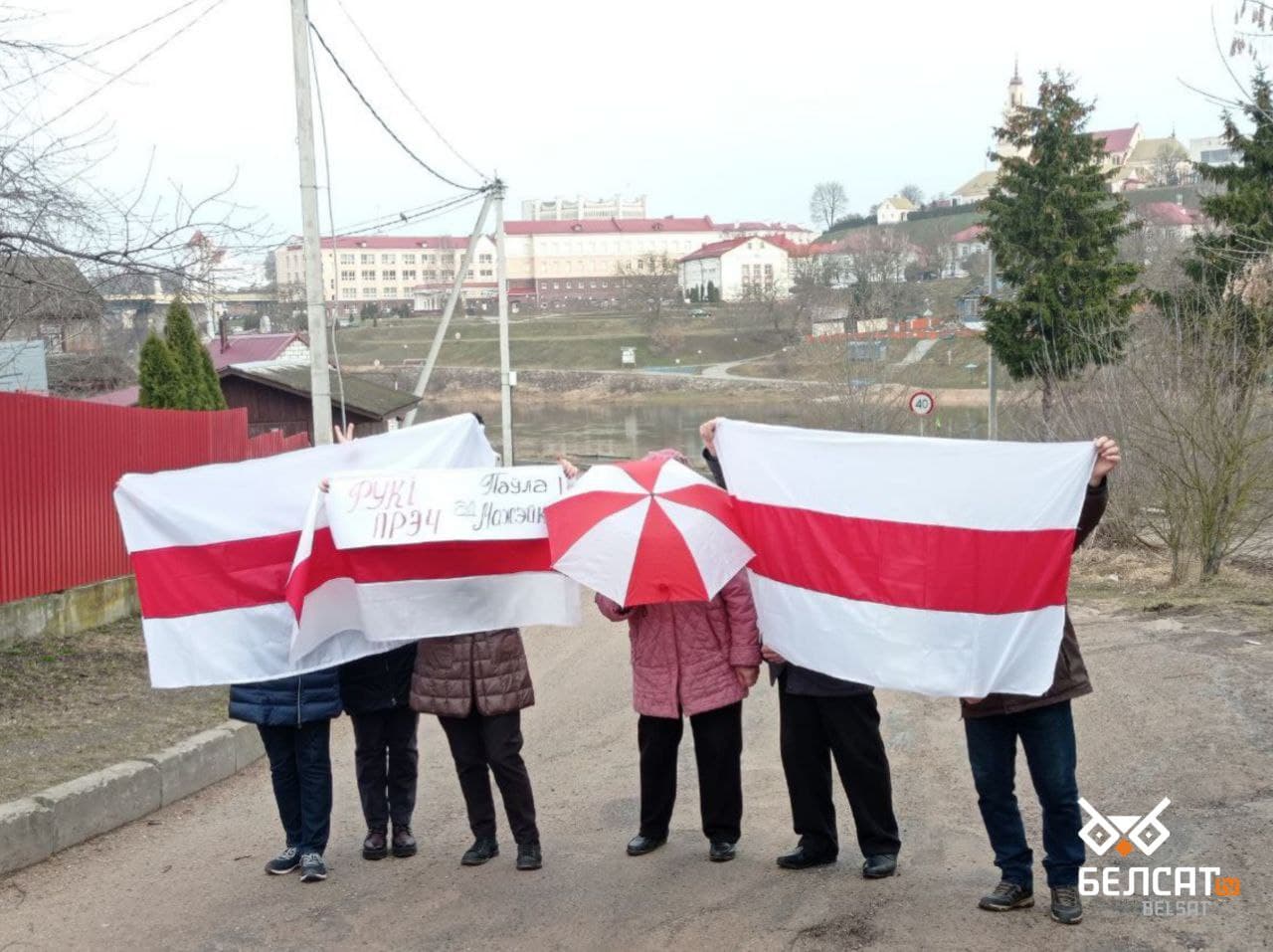Decentralised protests intensify as political exiles promote the creation of international mechanisms
 The situation has not changed
The situation has not changed

Mass street rallies on the central streets of the capital on or around Freedom Day did not occur, but local marches and protest activity resumed. Political exiles and the diaspora recall Belarus to the international community’s attention and lobby for the creation of mechanisms to investigate crimes.
On March 25 and the following days, Minsk’s streets were under the complete control of the security forces. However, in different parts of the capital and the country, activists organised events with local marches and pickets, displaying protest symbols (including in the centre of Minsk), fireworks, solidarity actions of motorists. Apparently, the pro-democracy movement has gained additional supporters at the expense of new protest movement activists.
Sviatlana Tsikhanouskaya’s office lobbied for a large-scale conference named after Kastus Kalinouski in Vilnius, organised by the Lithuanian Parliament.
Political exiles expect to involve the Kremlin as an interested party in OSCE mediated settlement of the crisis in Belarus, a position that resonates in Russia.
The UN Human Rights Council adopted a resolution on Belarus, giving broad powers to the UNCHR and EU state have announced the creation of an International Accountability Platform for Belarus to collect evidence of human rights violations and to bring those responsible for human rights abuses to justice.
The Belarusian Foundation for Cultural Solidarity appealed to the organisers of the Eurovision Song Contest regarding the ideological content of the Belarusian entry. As a result of public pressure, Belteleradiocompany was suspended from the competition due to the unacceptable politicisation of the songs submitted.
More than 760,000 people voted in a poll on the “Golos” [“Voice”] platform regarding negotiations with the Belarusian authorities. The vote has brought positive expectations among supporters of change in Belarus regarding the resolution of the political crisis. International support for the negotiation initiative continues to grow.
Delegates of the Skhod [Assembly] continue their work, promoting the idea of dialogue in society and crafting a plan for discussion in the community, including the development of self-government and preparation for local elections.
However, the previous generation of political exiles continues to criticise these strategies and the non-violent civil tactics adopted in 2020.
BySOL, BY_Help and several other initiatives continue to provide assistance to repression victims, despite the security forces’ attempts to destroy their crowdfunding infrastructure. Meanwhile, solidarity and mutual aid to those affected by the security forces’ actions continues in a decentralised manner inside Belarus itself.
The protest movement, therefore, continues via decentralised local actions. Tensions in society have not subsided, and mass street events may provoke the authorities to carry out yet another wave of repression.
Subscribe to our newsletter




Situation in Belarus
Constitutional referendum: main consequences


 Video
Video
How to count the political prisoners: are the new criteria needed?


 Video
Video
Paternalism In Decline, Belarusian Euroscepticism, And The Influence Of Russia


 Video
Video












